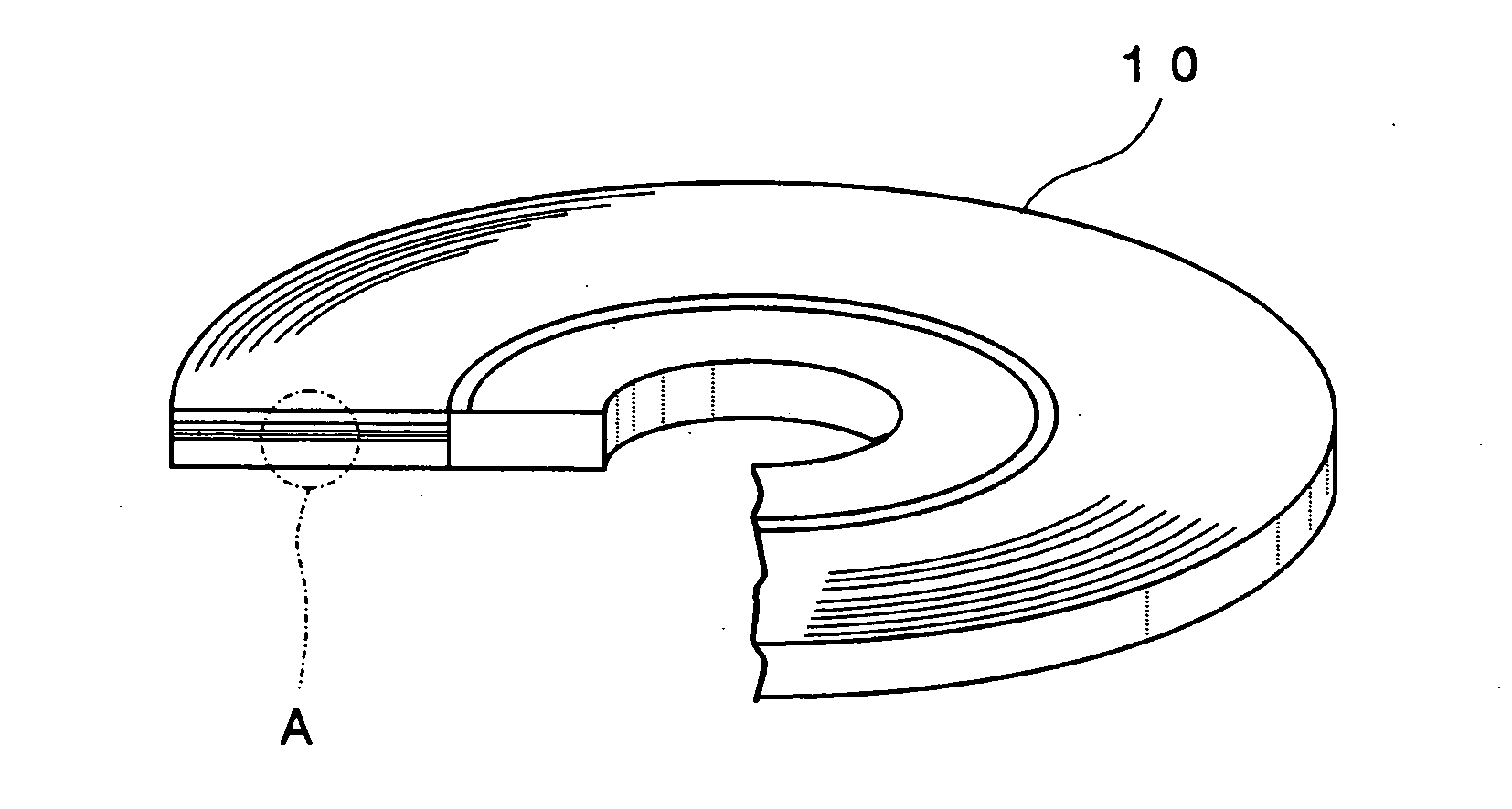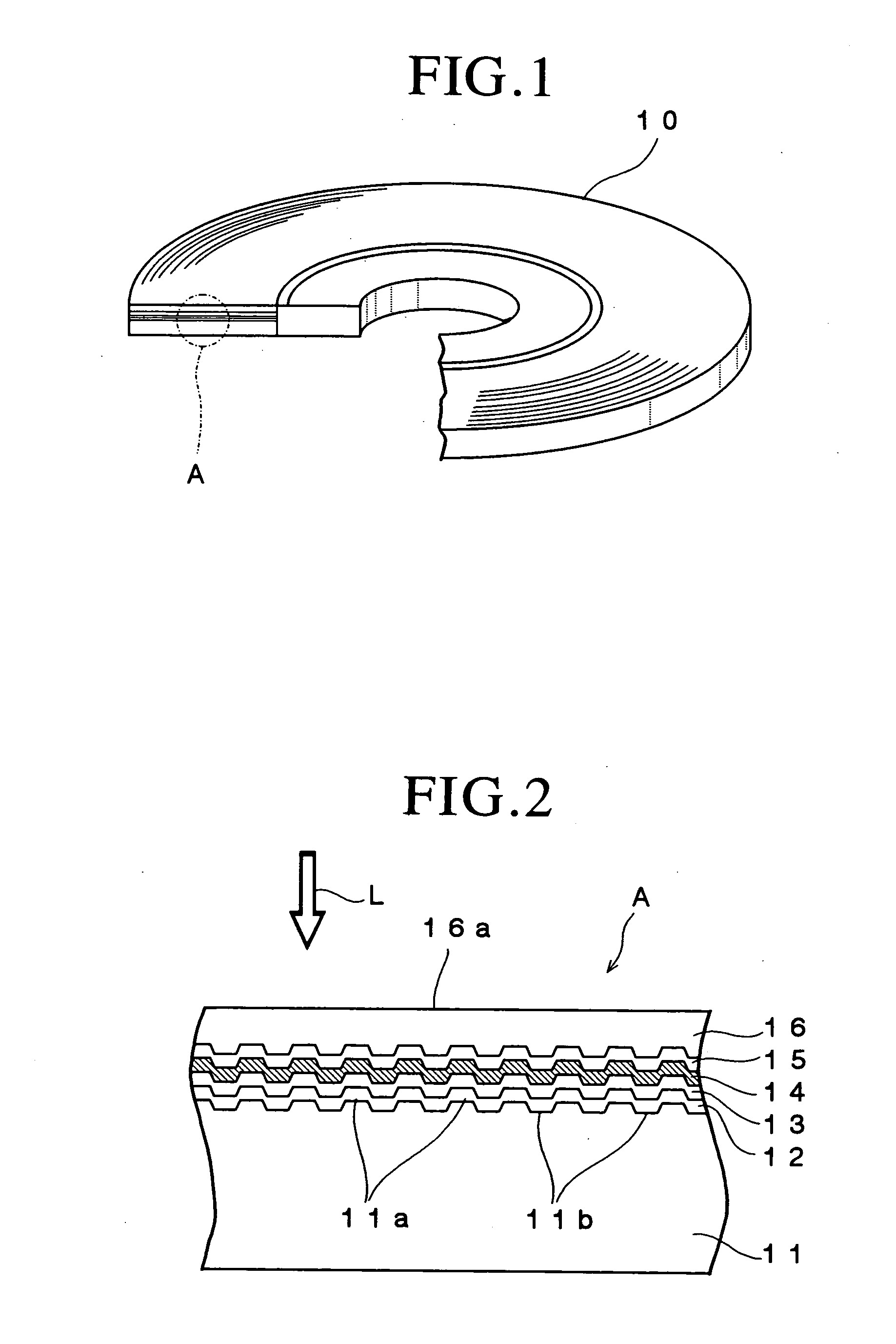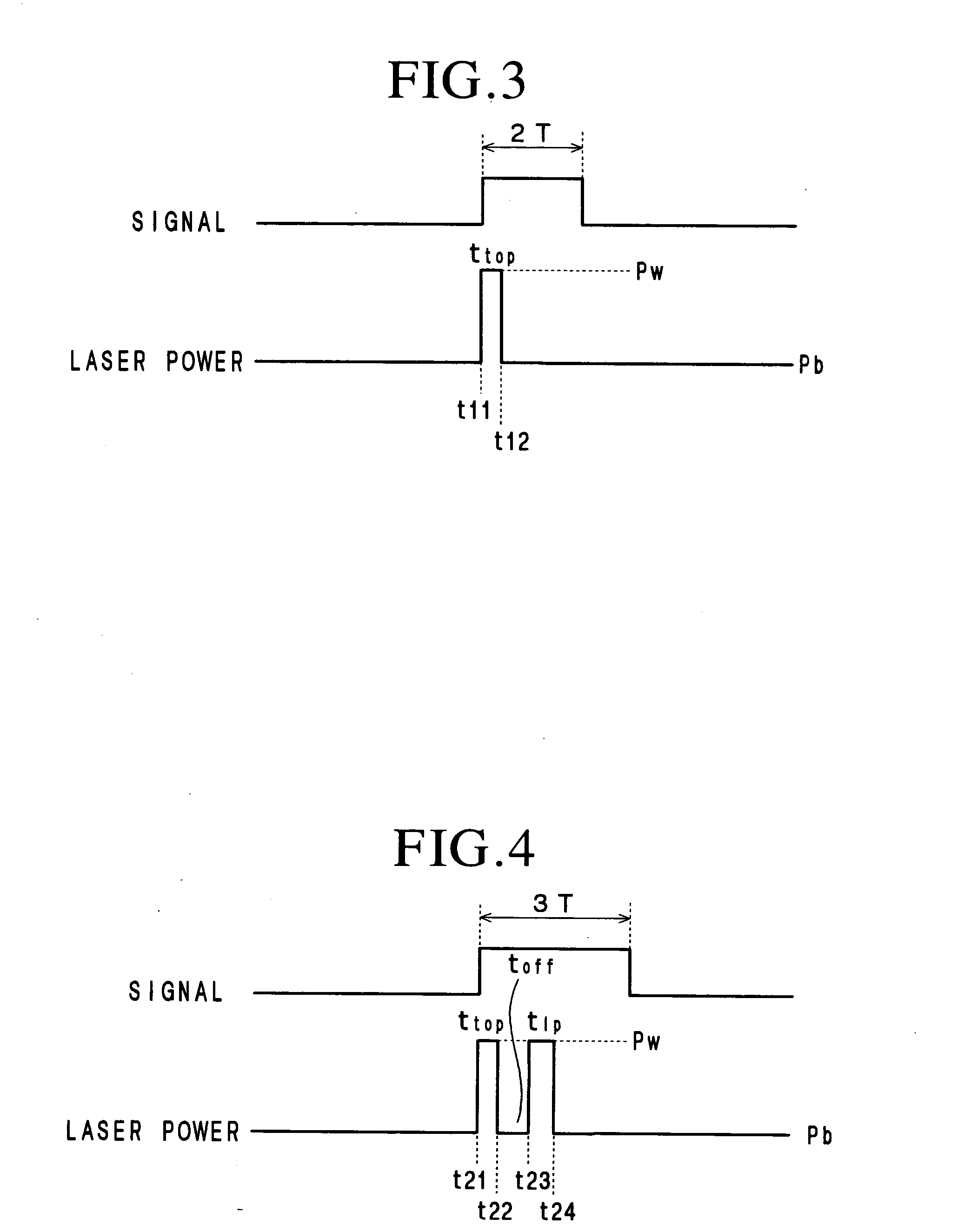Optical recording medium, method for manufacturing the same and target used for sputtering process
- Summary
- Abstract
- Description
- Claims
- Application Information
AI Technical Summary
Benefits of technology
Problems solved by technology
Method used
Image
Examples
working example 1
[0138] An optical recording medium sample #1-1 was fabricated in the following manner.
[0139] A disk-like polycarbonate substrate having a thickness of 1.1 mm and a diameter of 120 mm and formed with grooves and lands on the surface thereof was first fabricated by an injection molding process so that the track pitch (groove pitch) was equal to 0.32 .mu.m.
[0140] Then, the polycarbonate substrate was set on a sputtering apparatus and a reflective layer consisting of an alloy containing Ag, Pd and Cu and having a thickness of 100 nm, a second dielectric layer containing a mixture of ZnS and SiO.sub.2 and having a thickness of 25 nm, a recording layer containing an alloy represented by a composition formula: Ti.sub.xSi.sub.1-x and having a thickness of 10 nm and a first dielectric film containing the mixture of ZnS and SiO.sub.2 and having a thickness of 20 nm were sequentially formed on the surface of the polycarbonate substrate on which the grooves and lands were formed, using the sput...
working example 2
[0160] In the same manner as in Working Example 1, a random signal including a 2T signal to an 8T signal in the 1,7 RLL Modulation Code was recorded in each of the optical recording medium samples #1-1 to #1-5 by setting the recording power of the laser beam to the optimum recording power. Then, the thus recorded random signal was reproduced from each of the optical recording medium samples #1-1 to #1-5 and clock jitter of the reproduced signal was measured.
[0161] The results of the measurement are shown in FIG. 9.
[0162] In FIG. 9, the curve A1 shows clock jitter (single jitter) of a reproduced signal obtained from a track located between tracks in which no data were reproduced and the curve A2 shows clock jitter (cross jitter) of a reproduced signal obtained from a track located between tracks in which data were recorded.
[0163] As shown in FIG. 9, it was found that both single jitter and cross jitter were high in the case where the value of x in the composition formula: Ti.sub.xSi....
working example 3
[0165] An optical recording medium sample #3-1 was fabricated in the same manner as in Working Example 1 except that a recording layer containing an alloy represented by a composition formula: (Ti.sub.0.5Si.sub.0.5).sub-.yAl.sub.1-y was formed.
[0166] The composition of the alloy contained in the recording layer was determined so that the value of y in the composition formula: (Ti.sub.0.5Si.sub.0.5).sub.yAl.sub.1-y was equal to 0.67 (67 atomic %).
[0167] Further, optical recording medium samples #3-2 to #3-4 were fabricated in the same way as the optical recording medium sample #3-1 except that the value of y in the composition formula: (Ti.sub.0.5Si.sub.0.5).sub.yAl.sub.1-y was stepwise increased up to 1 (100 atomic %) to form recording layers.
[0168] Further, each of the optical recording medium samples #3-1 to #3-4 was set in the above mentioned optical recording medium evaluation apparatus and in the same manner as in Working Example 1, a random signal including a 2T signal to an 8...
PUM
| Property | Measurement | Unit |
|---|---|---|
| Dielectric polarization enthalpy | aaaaa | aaaaa |
Abstract
Description
Claims
Application Information
 Login to View More
Login to View More - R&D
- Intellectual Property
- Life Sciences
- Materials
- Tech Scout
- Unparalleled Data Quality
- Higher Quality Content
- 60% Fewer Hallucinations
Browse by: Latest US Patents, China's latest patents, Technical Efficacy Thesaurus, Application Domain, Technology Topic, Popular Technical Reports.
© 2025 PatSnap. All rights reserved.Legal|Privacy policy|Modern Slavery Act Transparency Statement|Sitemap|About US| Contact US: help@patsnap.com



